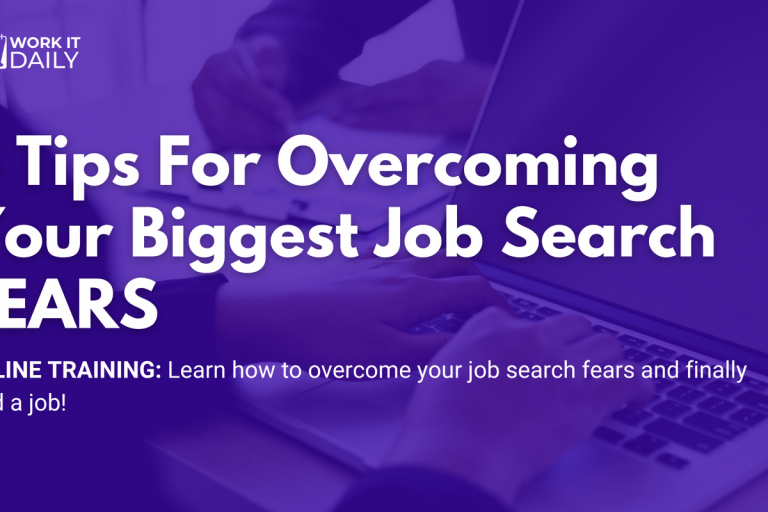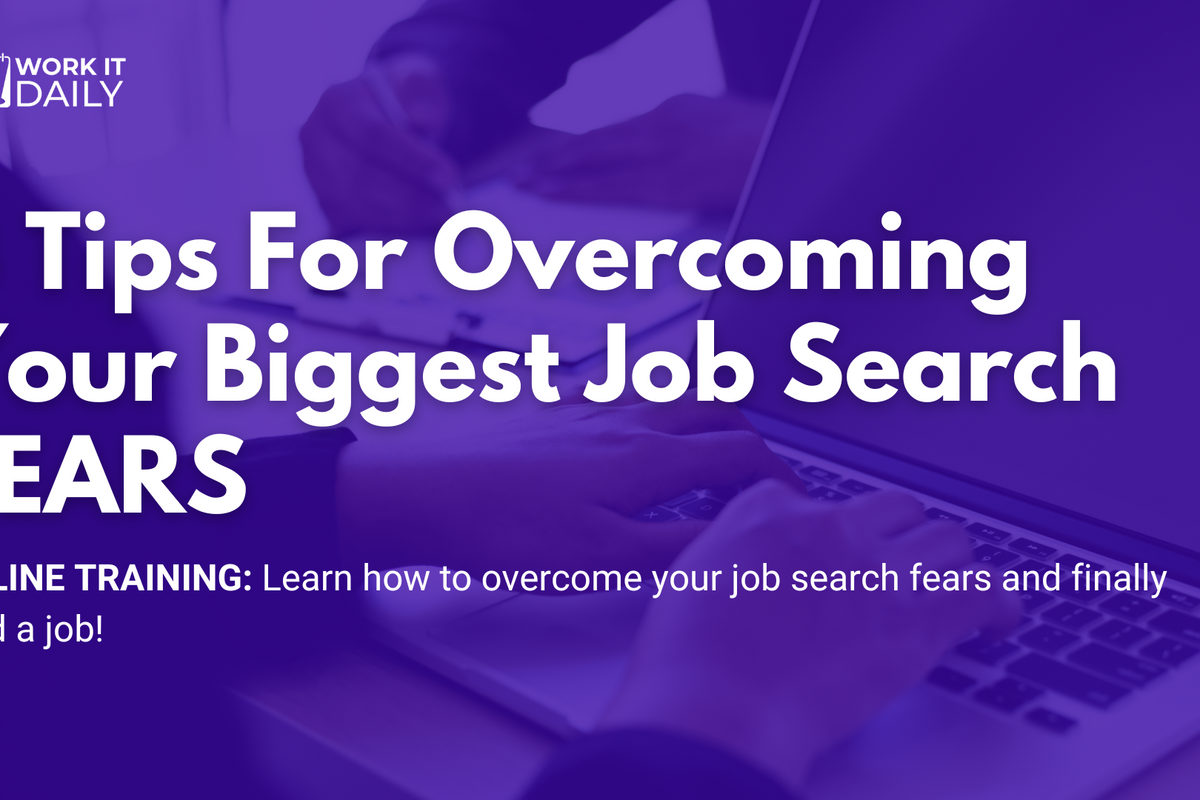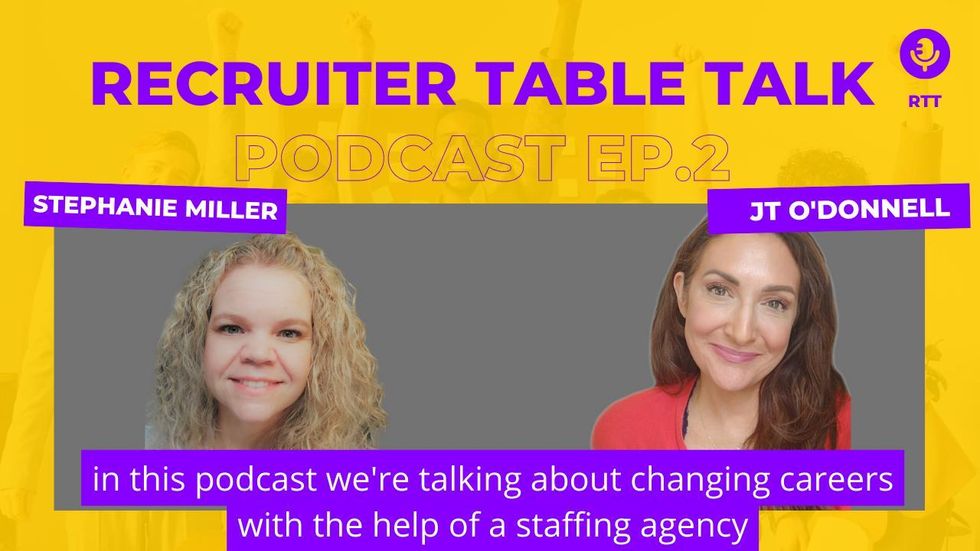
Do you think age discrimination is affecting your job search? Do you feel like you are losing out to the competition because you’re older? If so, you’re not alone in this thinking, and I’m going to share with you some information that’s going to help you overcome this challenge.
I have been getting a ton of questions lately on the subject of age discrimination, and I want to start by breaking a huge misconceptionâthe fact that it’s not technically age discrimination that you’re experiencing. It’s experience discrimination.
What Is Experience Discrimination?

What do I mean by that? Well, let me give you a little history. Right now there are about 40 million baby boomers in the workforce. These are people in their fifties, sixties, and beyond, and all of them have decided to stay in the workforce a lot longer than the generations before them.
The problem is that, over the last 10+ years, 70 million people from younger generations have also emerged and entered the workforce.
Millennials and Gen Z make up over half the workforce today, and many of them are now in their late twenties and early thirties. This means that they have enough years of experience to be relevant in the marketplace, and given the fact that they cost a lot lessâand oftentimes have fewer bad habits and are more technologically savvyâmore and more employers hire them over older, more seasoned, more experienced workers.
Again, it’s not really age discrimination. It is a case of the law of supply and demand. If you think about the world of business, there is too much supplyâtoo many seasoned workersâand not enough demand for their skill sets (even with low unemployment rates).
So, what do you do about this?
Well, first understand that this situation isn’t only affecting baby boomers. Eventually, millennials are going to get impacted by this as well. This is due to what is called “globalization,” and every single day the geographic and economic boundaries to getting affordable help are lowering around the world.
In fact, I was working with a client recently who told me how he could hire one PhD here in the U.S., or hire three PhDs for the same price in Europe. This trend is going to continue. Believe it or not, here in the U.S., we all live in the 1% in terms of income and opportunity when compared to the rest of the world.
So, start thinking about how you’re going to change your strategy with respect to your career and your relevance in the marketplace. Again, it’s a supply and demand concept. What you want to do is build a way where your skill sets and expertise are in less supply, so that you are higher in demand.
Now that you understand this whole concept, what you want to do is focus on the fact that you are no longer an employee. You are a business-of-one, and your job is to sell and market your services to employers.
For a business to stay in business, it has to stay relevant in the marketplace. And there are three specific things that we suggest people do in order to make that happen for themselves.
Step 1: Define Your Personal Brand

The first thing you have to do is define your personal brand.
You have to understand what you’re the go-to person for, what your specialty is, and specifically what problems you solve/what pain point you alleviate. This is because employers can only hire you when you save or make them enough money. When you solve their problems, you alleviate their pains to justify the cost of hiring you.
So, it’s on you to get very clear about what your value proposition is, and to do so I suggest that you take our free “career decoder” quiz. This is going to show you what your workplace personas areâthe things that you like to do, the tasks that you like to accomplish, and how you like to deliver value in the workplace.
Understanding your workplace personas is the first step in building a very clear personal brand that will help people understand why they should hire you.
Step 2: Follow A Smart Career Strategy

The second step in the process is to follow a smart career strategy. Today, every job is temporary, and we know that school has taught us everything except how to manage our careers.
Now that the marketplace is always changing, you can’t build a 5, 10, or 20-year career plan. You can really only do one or two years out at a time. Your career strategy has to be agile, but it has to be very succinct and focused at the same time.
So, at any given time, you should know exactly what you’re trying to achieve, both in your career overall and specifically with regard to relevant skills that you’re trying to grow and leverage.
What you don’t want to do is plateau. Again, I’ve seen a lot of seasoned workers in their fifties and sixties who got to a certain level in their career and thought, “This is good enough; my skills are good enough.” Meanwhile, the whole world around them was changing.
This kind of works like a bell curve. They go up, they plateau, and they start to go down. Now all of a sudden they’re trying to get any job they canâbut they’ve also outpriced themselves in the market.
So your job is to always keep focusing on growing your skills, and being able to tell the world specifically what you’re doing to upskill every single year.
Step 3: Work On Your Career, Not Just “In” It
The third step is for you to work on your career as much as you work in it. The truth is that we can easily get caught up in the day-to-day aspects of our job and kind of grind through our week, our months, and our years without ever really thinking about the strategy of our career.
One of the biggest components of this is networking. These days, your network is your net worth. It’s all about who you know.
There are tons of studies that show the best way to get your next job is through a networking connection. If you haven’t checked out our video on this, we’ve got some great resources on networking that can really help you start to understand thisâespecially with regard to online networking tools like LinkedIn.
A lot of people don’t understand that there are protocols that you need to follow in online networking that are very similar to offline or in-person networking. Unfortunately, people have been short-cutting these protocols and making some terrible, terrible mistakes in the process.
So, please make sure that you’re digitally networking the right wayâgrowing your network, nurturing your network, serving your network. This is the best way for you to have a healthy network, should something happen and you suddenly need to look for a new job. You’ll be able to tap into your professional network without having to start from scratch.
No matter your age and experience level, building these skill sets and having these strategies in place is vital to a successful career. And it’s especially important if you’re trying to overcome experience discrimination.
Again, you are now a business-of-one, and you need to stay on top of these trends in order to stay relevant. Remember these tips and you’ll successfully overcome age discrimination in your job search.
Need help staying relevant in today’s job market?
I’d love it if you signed up for Work It Daily’s Power Hour Event Subscription! I look forward to answering all of your career questions in our next live event!


























































